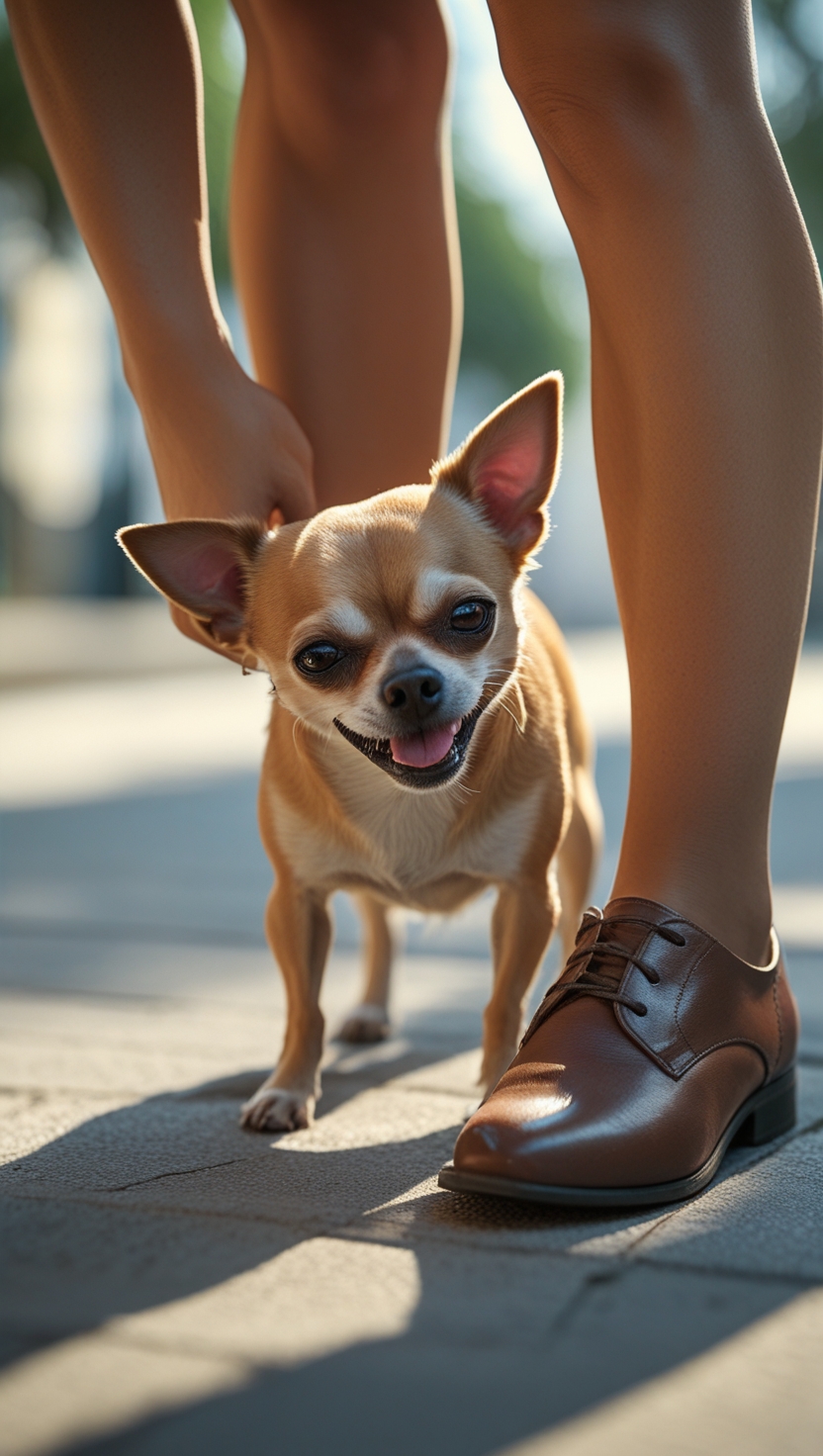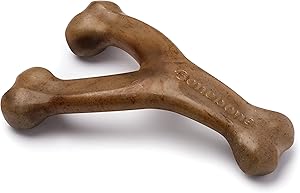
Have you ever wondered why your small dog just can't resist nipping at your ankles?
It may look playful at first, but if left unchecked, ankle-biting can become a frustrating habit. Whether you have a Chihuahua, Dachshund, or Terrier, this behavior is more common than you think.
In this article, you'll discover:
- 9 reasons why small dogs bite ankles
- 5 effective tips to stop ankle-biting
- How YOU may unknowingly encourage this behavior
- And more!
Let’s dive in!
Why Do Small Dogs Bite Ankles?
Small dogs bite ankles due to various reasons such as playfulness, fear, lack of exercise, attention-seeking, boredom, or even anxiety. Some may also have natural herding instincts or feel territorial. Fortunately, with the right strategies, you can train them to stop.
9 Reasons Why Small Dogs Bite Ankles
#1. Playfulness and Attention-Seeking
For many small dogs, ankle-biting is simply a fun game. Your fast-moving feet become irresistible, especially when they’re looking for attention or want to play. If they see a reaction from you, they'll repeat the behavior.
#2. Fear or Anxiety
Some small dogs bite ankles as a defensive reaction. Loud noises, strangers, or new environments can trigger fear, leading them to nip at the nearest moving target — your ankles.
#3. Lack of Exercise
High-energy small breeds need regular physical activity. Without proper walks and playtime, they become restless and channel that energy by biting ankles or engaging in other destructive behaviors.
#4. Boredom
A bored dog will always find ways to entertain themselves. Chewing furniture, barking excessively, and yes, ankle-biting, are often signs they need more mental stimulation.
#5. Puppy Exploration and Teething
If your small dog is still a puppy, ankle-biting could be due to teething or exploring. Puppies naturally use their mouths to learn about their world.
#6. Herding Instincts
Certain small breeds, like Corgis or Miniature Schnauzers, were bred as herding dogs. Biting at heels and ankles is a natural behavior rooted in their instincts to control movement.
#7. Territorial Behavior
Small dogs often feel the need to guard their space. If they perceive you or others as "invading" their territory, they might bite ankles as a form of control.
8. Lack of Socialization
Dogs who aren’t properly socialized may not know how to behave around people. New stimuli can overwhelm them, leading to anxious or aggressive behaviors like ankle-biting.
#9. Pain or Discomfort
Sometimes, ankle-biting is a sign something’s physically wrong. Small dogs experiencing pain (such as dental problems or joint issues) might express their discomfort through aggression.
5 Tips To Stop Your Small Dog From Biting Ankles
#1. Redirect with Toys
Always keep chew toys or tug toys handy. When your dog starts targeting your ankles, distract them with a toy. Over time, they'll learn toys are more fun (and rewarding!) than biting feet.


#2. Increase Exercise & Playtime
Tired dogs are well-behaved dogs. Make sure your small dog gets sufficient physical activity and mental stimulation daily. Regular walks, games like fetch, and puzzle toys work wonders.
#3. Teach Basic Commands
Training commands like "Leave it" or "No bite" can stop the behavior on the spot. Positive reinforcement (treats and praise) when they listen will help the lesson stick.
#4. Avoid Encouraging the Behavior
Don’t laugh, play chase, or give extra attention when they bite your ankles. Even negative reactions can accidentally reinforce the habit. Stay calm and redirect instead.
#5. Consult a Professional
If ankle-biting persists, seek help from a certified dog trainer or animal behaviorist. They can create a customized plan and address any deeper behavioral issues.
Final Thoughts
Small dogs may have big personalities, but that doesn't mean ankle-biting has to be part of the package. By understanding why they do it and following the right strategies, you’ll help your pup feel more secure, stimulated, and well-behaved.
Ready to stop ankle-biting once and for all? Start by applying these tips today!